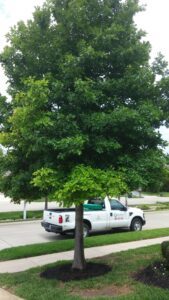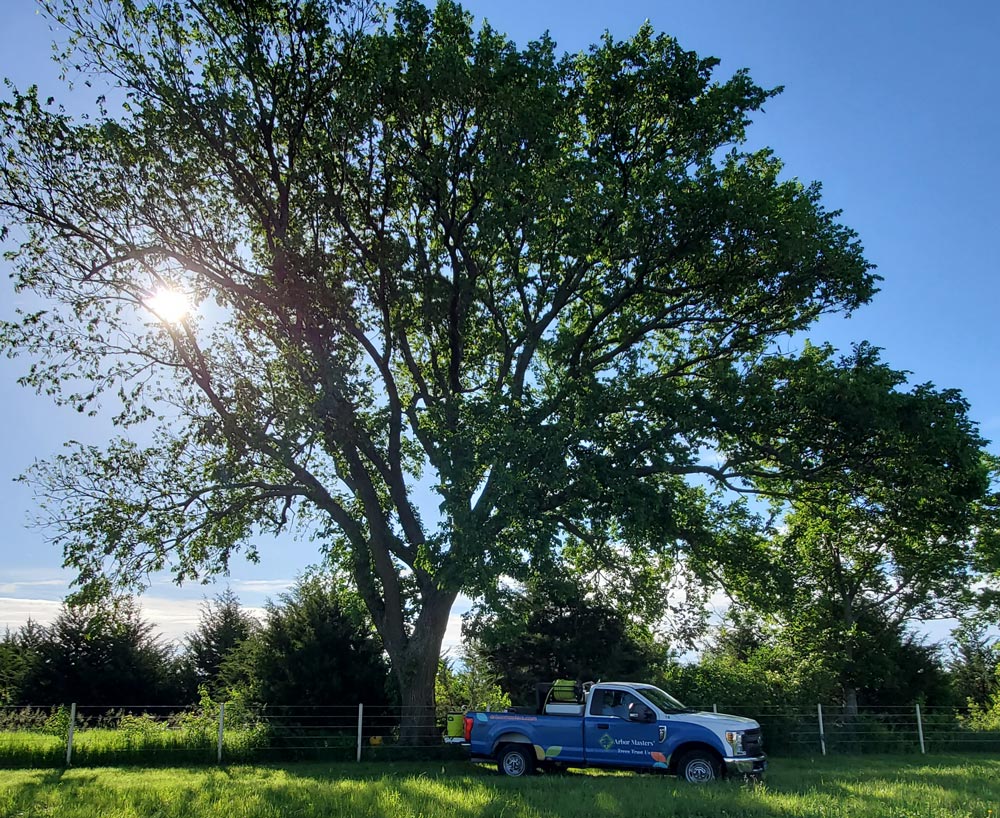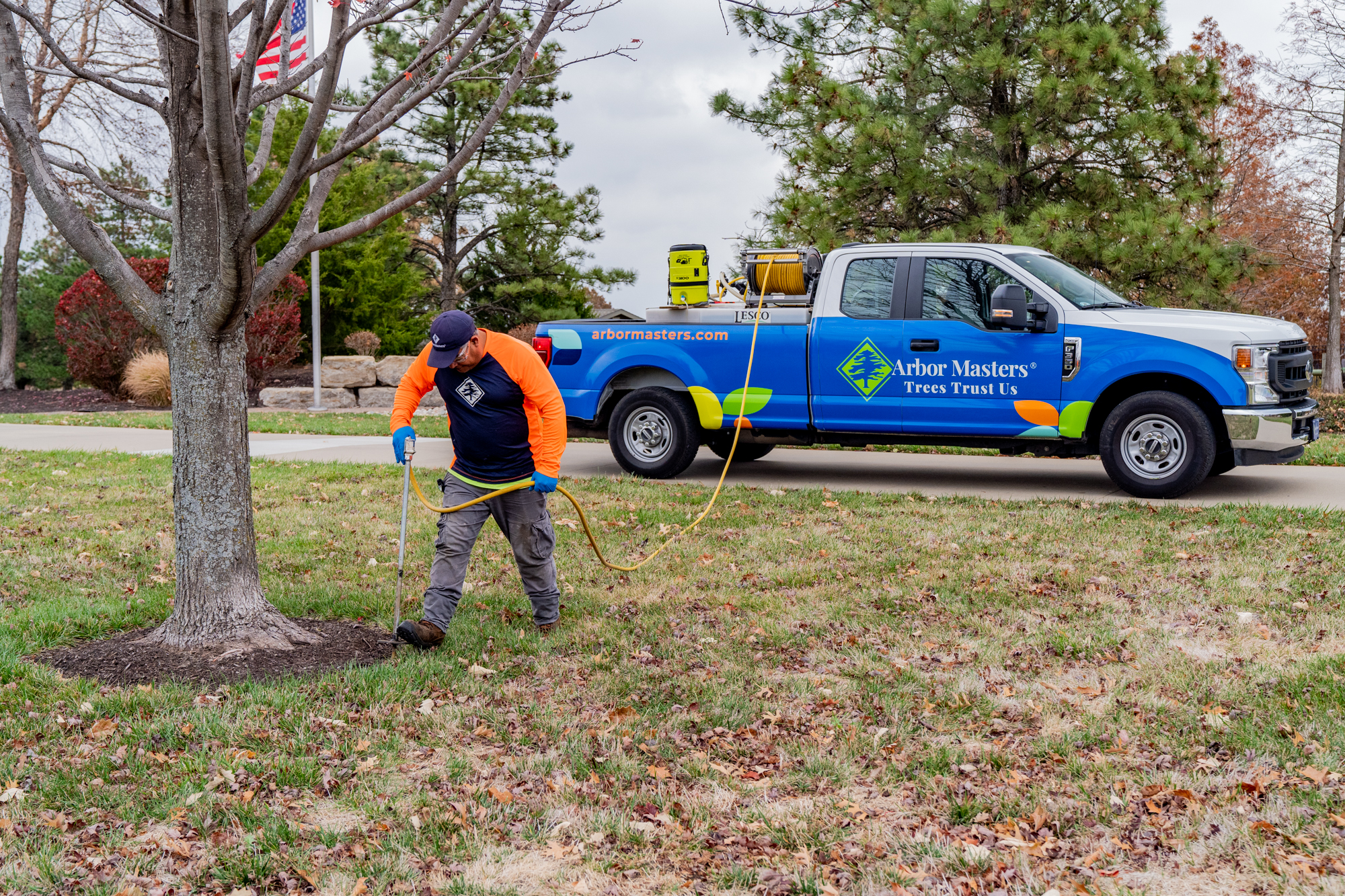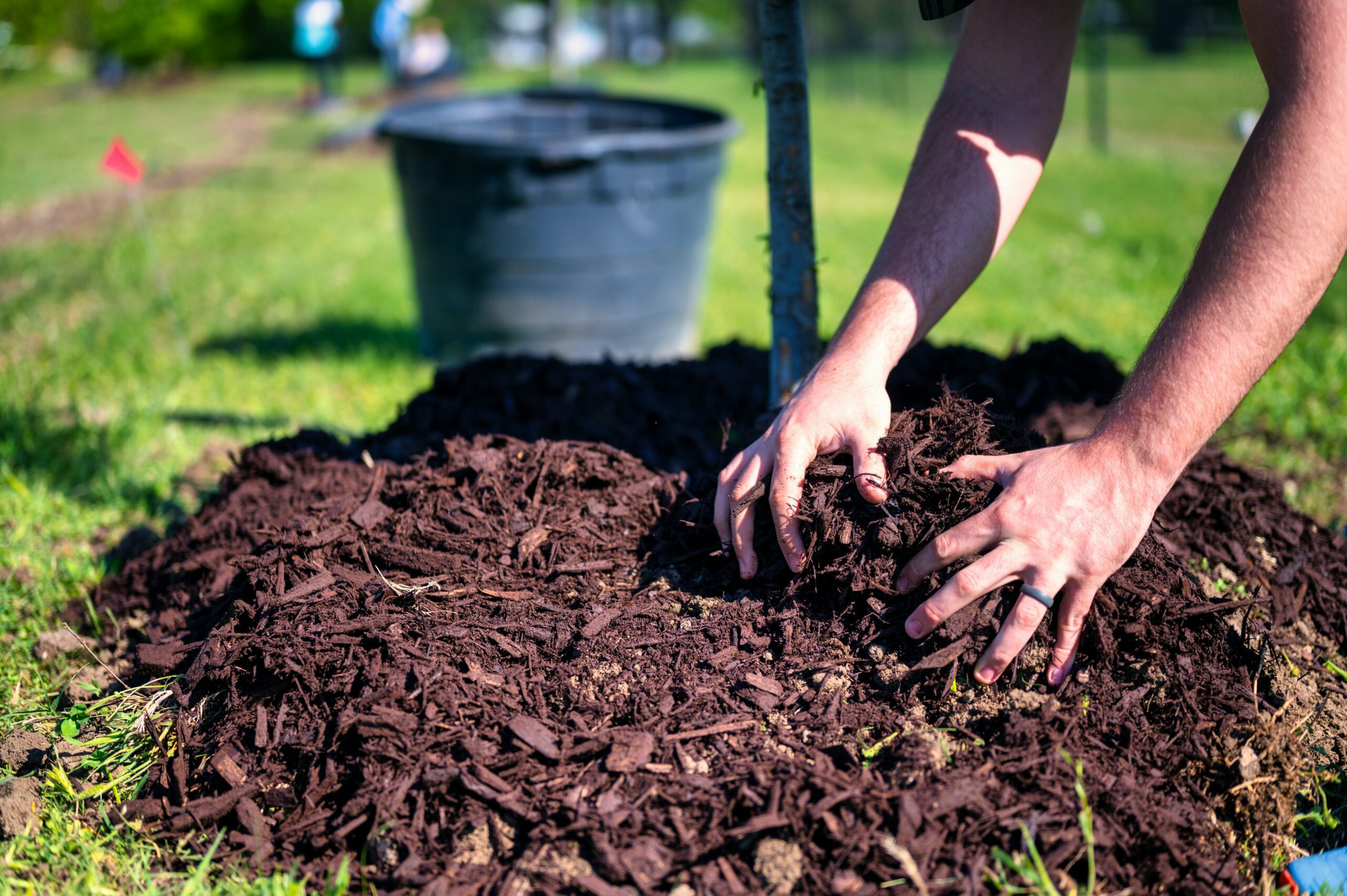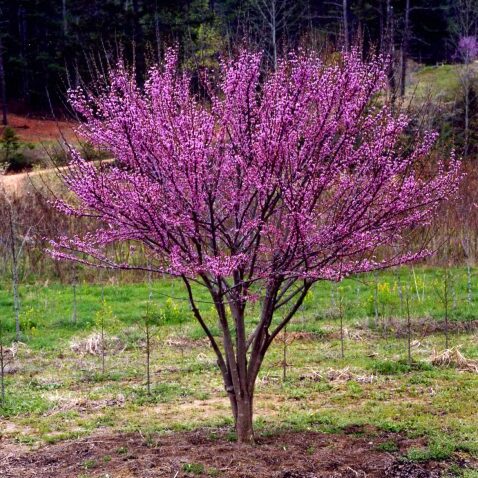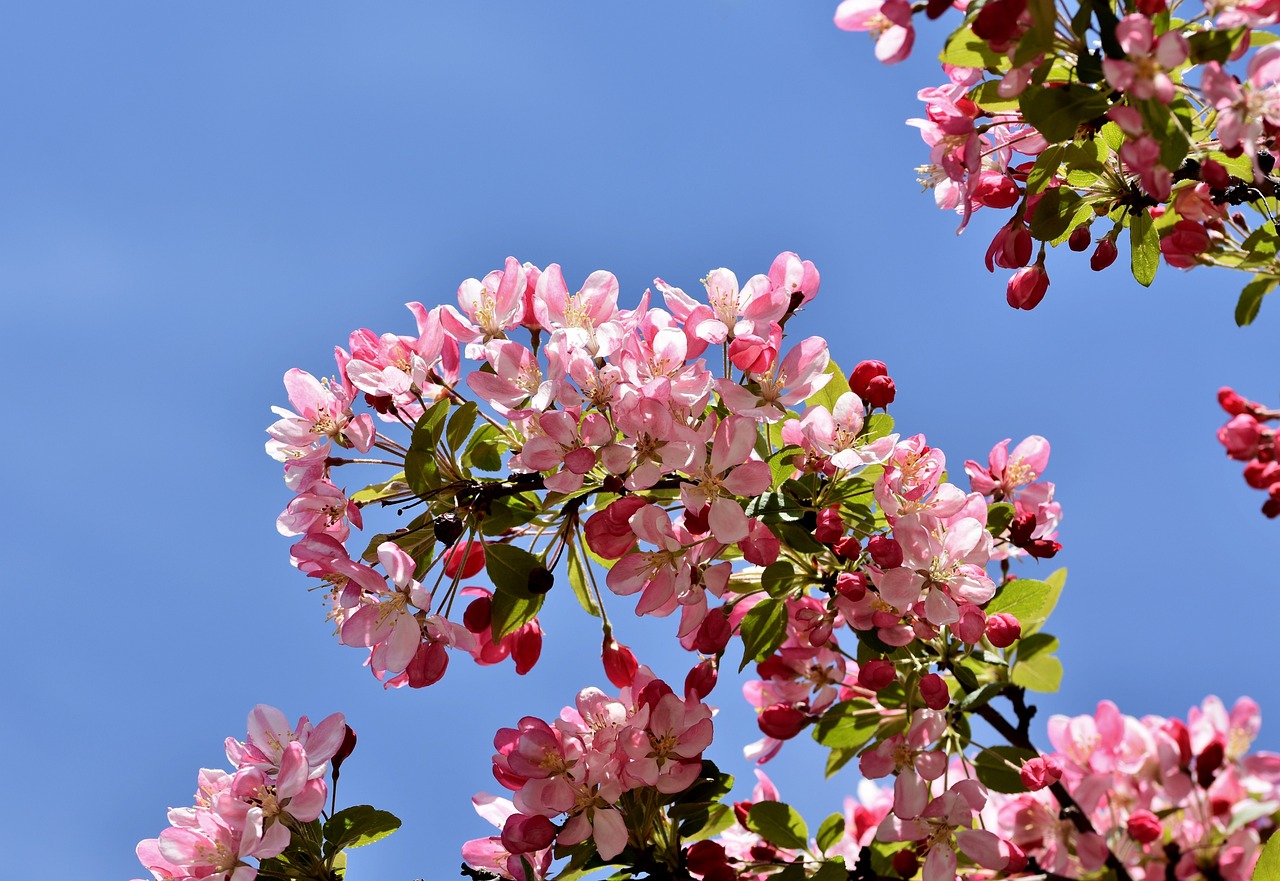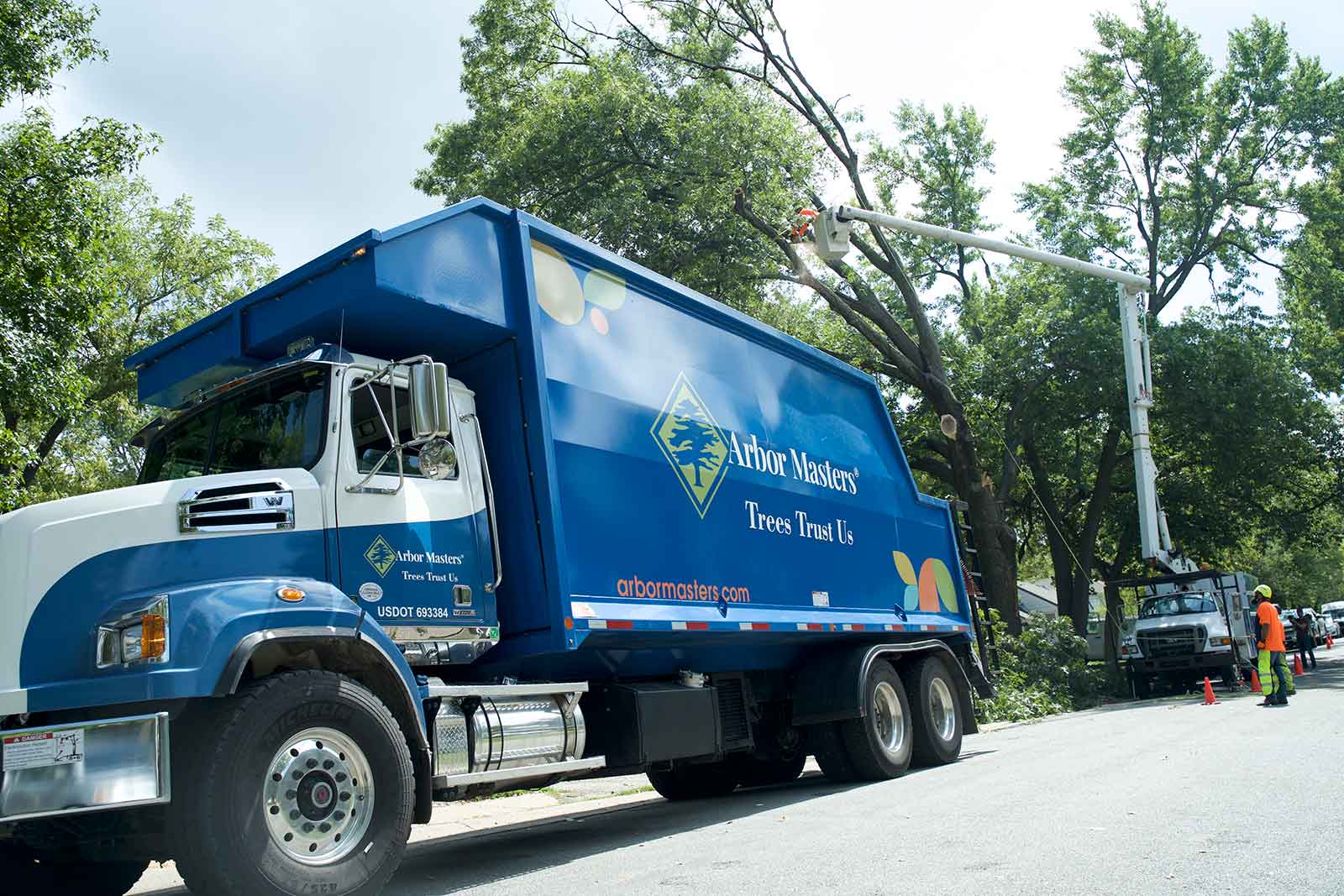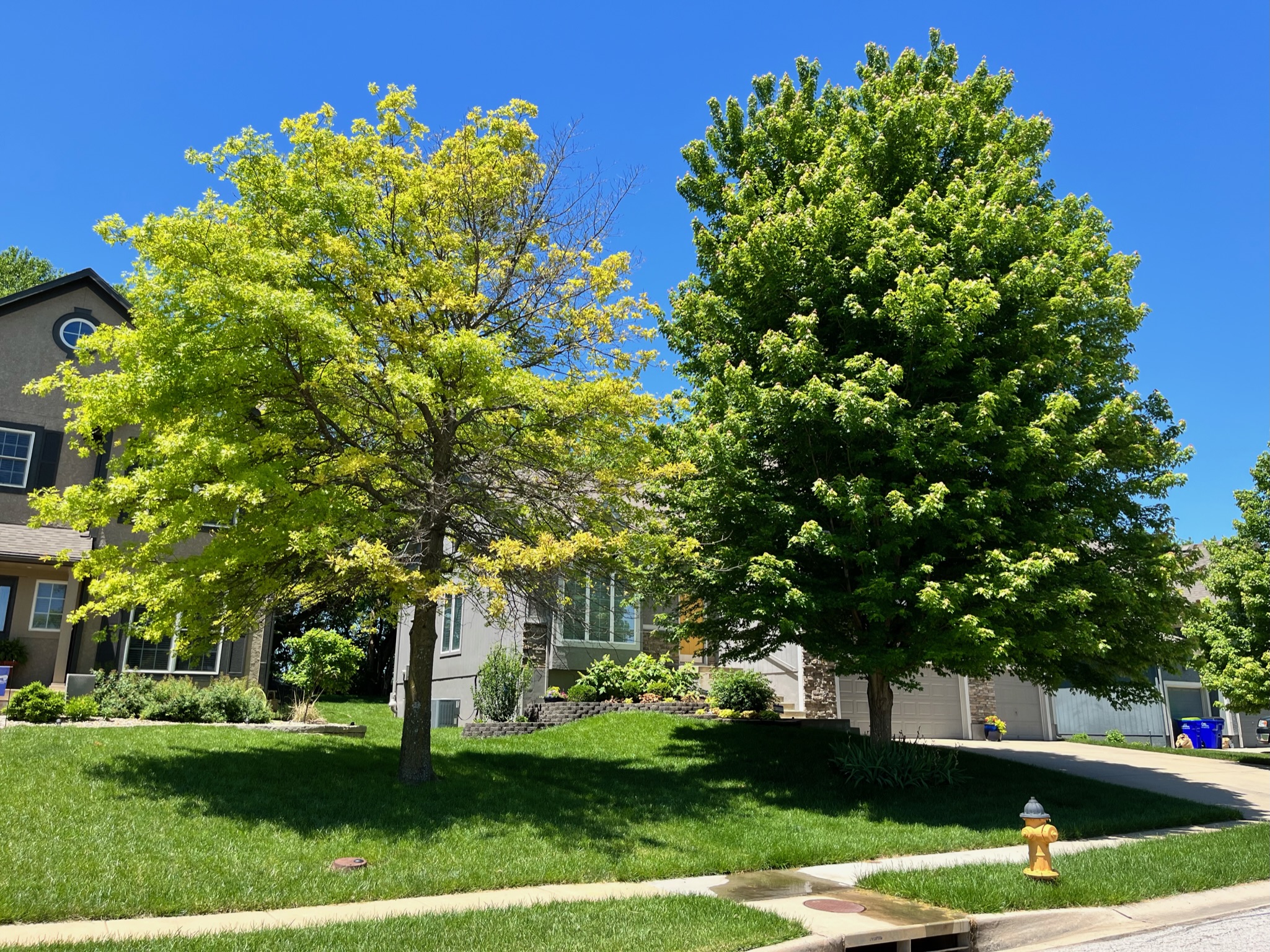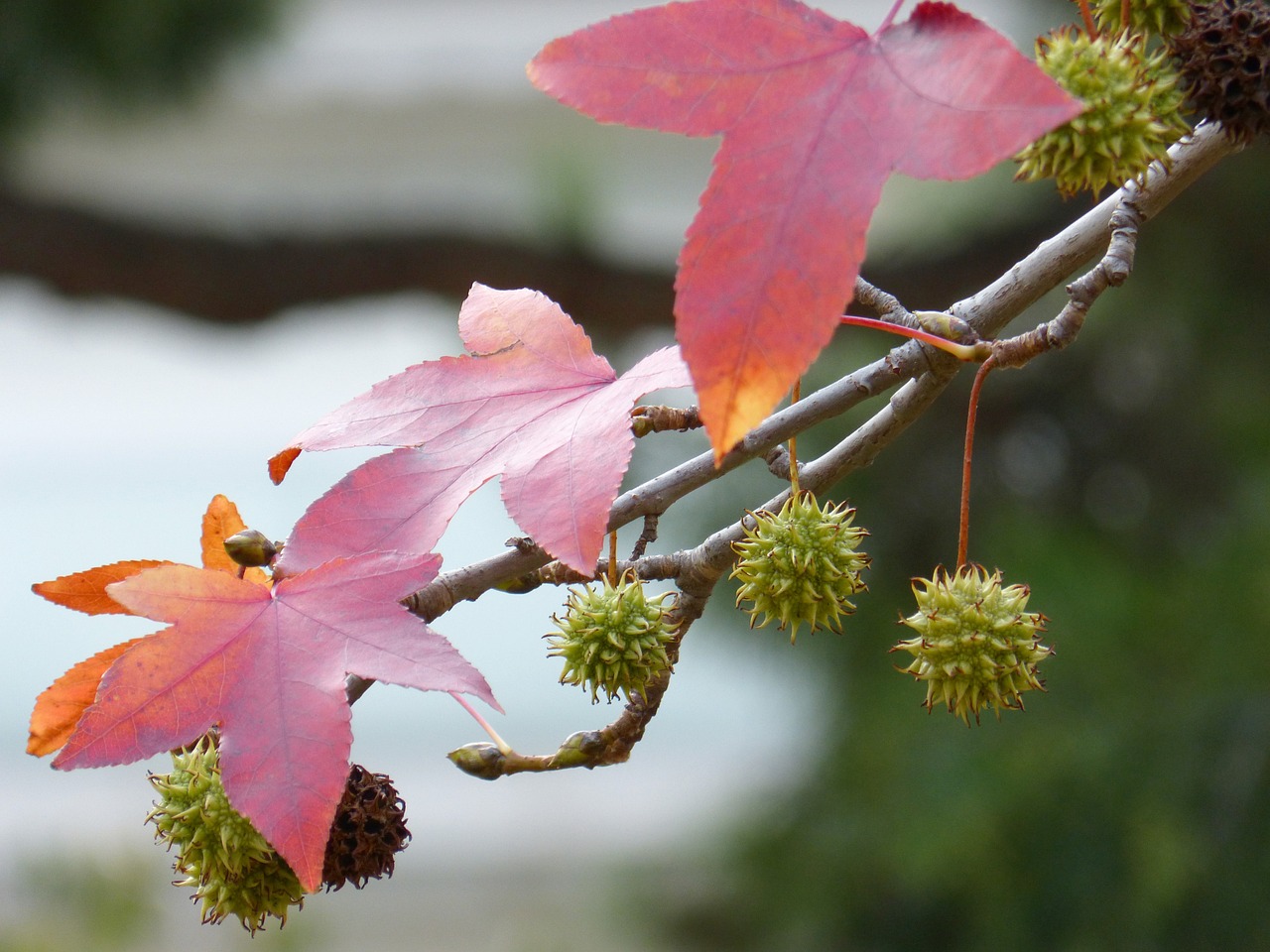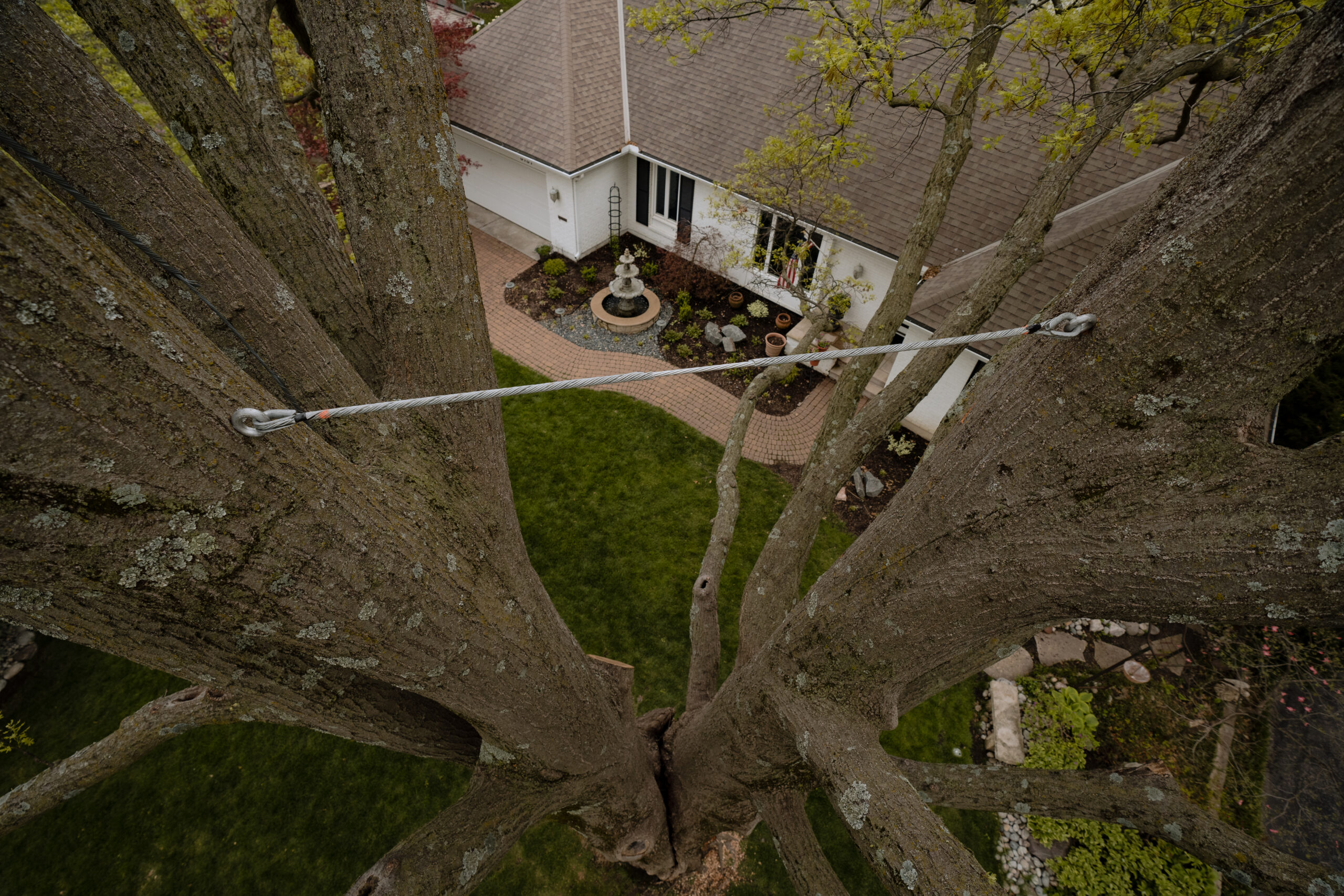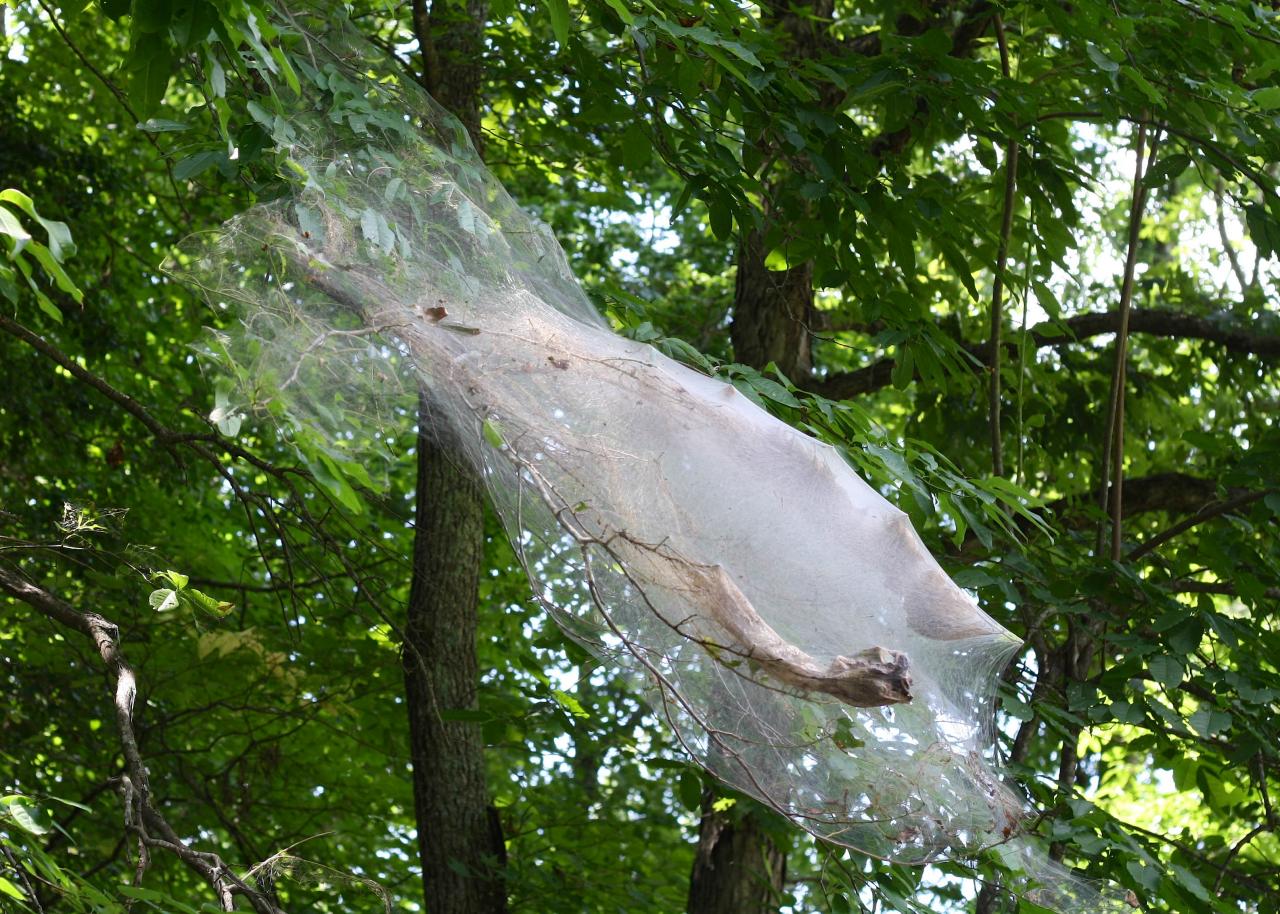A common belief among homeowners is that all trees are self-sustaining. In actuality, the trees you see throughout your neighborhood aren’t getting the same nutrients that they would have readily available if they were growing in a forest.
Like we depend on our multivitamins, trees depend on soil for things like nutrients, air, water and a natural recycling system to survive. This natural recycling system creates fertile soils from decomposing plant and animal materials, which helps the tree roots acquire nutrients like nitrogen, phosphorus and potassium. Since no one is raking up leaves and twigs in our national forests, forest trees’ roots have more access to these important nutrients. Additionally, your suburban trees have to compete for water against the grass and shrubs in your lawn.
Why fertilization matters
So, if your tree isn’t receiving the nutrients it needs from the soil in your neighborhood, how does it stay healthy and grow? It doesn’t mean stop raking your yard; instead, tree fertilization treatments can help. Fertilizing your trees provide nutrients it may be lacking so they can fight environmental stresses and pests.
When the soil your tree depends on isn’t providing the correct or enough nutrients, its health diminishes while the risk of disease and death increases.
If you see these following signs, you should add tree fertilization to your spring to-do list:
Signs of low nutrition in your tree
- Poor overall tree growth (little annual twig growth)
- Pale green or yellow leaves out of season
- Dead spots in the tree canopy
- Early loss of leaves
These symptoms can also be proof of more serious issues within your tree’s root system. A consultation with an arborist will offer a reliable diagnosis for your tree and ensure the correct treatments are provided for your tree’s health needs.
.
Example of an iron deficient tree shown by its pale-colored leaves before and after treatment.
Depending on which nutrients your tree is lacking and other specifics like tree type, your fertilizer’s composition and application may vary. However, the benefits are loud and clear.
Benefits of tree fertilization treatments
- Overall maintained tree health
- Increased tree growth
- Vibrant leaf coloring
- Speedier wound recovery
- Tougher immune system to fight seasonal disease and stress
To provide these benefits to your trees, it’s important to consult an arborist so they can formulate the specific fertilizer and application method that’s needed. There are multiple variations of fertilizers to take into account, so consulting with a professional is vital to ensure the correct treatment. Arborists will also take into account the timing of treatments as seasons go through their changes, trees react to this annual cycle. For instance, spring is the optimal time for first round applications of fertilizer as it offers nutrients just as the tree enters its growth cycle.
Looking for a tree health expert?
Is your tree lacking in nitrogen or iron? Do you need a synthetic or a natural fertilizer? Arbor advisors at Arbor Masters are the resource you can rely on to properly diagnose your trees and begin your fertilization treatment.
Contact Arbor Masters to learn more.


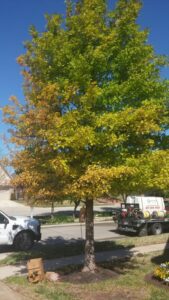 .
. 